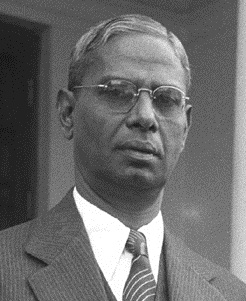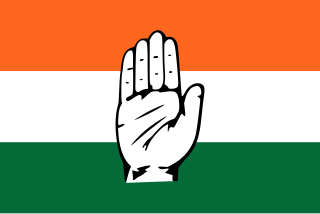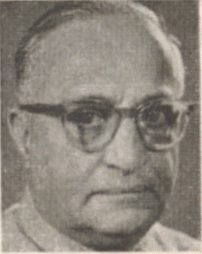Related Research Articles

Jawaharlal Nehru was an Indian anti-colonial nationalist,secular humanist,social democrat,author and statesman who was a central figure in India during the middle of the 20th century. Nehru was second only to Mahatma Gandhi in leading the Indian nationalist movement in the 1930s and 1940s. Upon India's independence from Britain in 1947,he served as the country's first prime minister for 16 years. Nehru championed parliamentary democracy,secularism,science and technology during the 1950s,influencing India's arc as a modern nation. In international affairs,he is well-known as one of the Founders of the Non-aligned Movement and,concomitantly,for steering India clear of the two blocs of the Cold War. A coveted author,the books he wrote in prison,such as Letters from a Father to His Daughter (1929),An Autobiography (1936) and The Discovery of India (1946),have been read and deliberated upon around the world.

The Indian National Congress (INC),colloquially the Congress Party or simply the Congress,is a political party in India with deep roots in most regions of India. Founded on 28 December 1885,it was the first modern nationalist movement to emerge in the British Empire in Asia and Africa. From the late 19th century,and especially after 1920,under the leadership of Mahatma Gandhi,the Congress became the principal leader of the Indian independence movement. The Congress led India to independence from the United Kingdom,and significantly influenced other anti-colonial nationalist movements in the British Empire.

Chakravarti Rajagopalachari BR,popularly known as Rajaji or C.R.,also known as Mootharignar Rajaji,was an Indian statesman,writer,lawyer,and Indian independence activist. Rajagopalachari was the last Governor-General of India,as when India became a republic in 1950 the office was abolished. He was also the only Indian-born Governor-General,as all previous holders of the post were British nationals. He also served as leader of the Indian National Congress,Premier of the Madras Presidency,Governor of West Bengal,Minister for Home Affairs of the Indian Union and Chief Minister of Madras state. Rajagopalachari founded the Swatantra Party and was one of the first recipients of India's highest civilian award,the Bharat Ratna. He vehemently opposed the use of nuclear weapons and was a proponent of world peace and disarmament. During his lifetime,he also acquired the nickname 'Mango of Salem'.

Dr. Zakir Husain Khan was an Indian educationist and politician who served as the 3rd president of India from 13 May 1967 until his death on 3 May 1969.

Motilal Nehru was an Indian lawyer,activist,and politician affiliated with the Indian National Congress. He served as the Congress President twice,from 1919 to 1920 and from 1928 to 1929. He was a patriarch of the Nehru-Gandhi family and the father of Jawaharlal Nehru,India's first Prime Minister.

Jawaharlal Nehru University is a public research university located in Delhi,India. It was established in 1969 and named after Jawaharlal Nehru,India's first Prime Minister. The university is known for leading faculties and research emphasis on social sciences and applied sciences.

The Constituent Assembly of India was partly elected and partly nominated body to frame the Constitution of India. It was elected by the Provincial assemblies of British India following the Provincial Assembly elections held in 1946 and nominated by princely states. After India's independence from the British in August 1947,its members served as the nation's 'Provisional Parliament',as well as the Constituent Assembly. It was conceived and created by V. K. Krishna Menon,who first outlined its necessity in 1933 and enshrined it as an Indian National Congress demand.

Purushottam Das Tandon was a freedom fighter from Allahabad,Uttar Pradesh,India. He is widely remembered for his opposition to the partition of India,as well as efforts in achieving the Official Language of India status for Hindi. He was customarily given the title Rajarshi. He was popularly known as UP Gandhi. He was awarded the Bharat Ratna,India's highest civilian award,in 1961.

Sir Ramasamy Chetty Kandasamy Shanmukham ChettyKCIE was an Indian lawyer,economist and politician who served as first Finance Minister of India from 1947 to 1948. He also served as President of India's Central Legislative Assembly from 1933 to 1935 and Diwan of Cochin kingdom from 1935 to 1941.
Mahavir Tyagi was a prominent Indian independence fighter and parliamentarian from Dehradun,Uttar Pradesh India.

The Indian National Congress was established when 72 representatives from all over the country met at Bombay in 1885. Prominent delegates included Dadabhai Naoroji,Surendranath Banerjee,Badruddin Tyabji,Pherozeshah Mehta,W. C. Banerjee,S. Ramaswami Mudaliar,S. Subramania Iyer,and Romesh Chunder Dutt. The Englishman Allan Octavian Hume,a former British civil servant,was one of the founding members of the Indian National Congress.

Rafi Ahmed Kidwai was a politician,an Indian independence activist and a socialist. Kidwai served as a Minister of Communications in the first Cabinet of Independent India.

Paramasivan Subbarayan was an Indian politician,freedom fighter and diplomat and was the First Minister of Madras Presidency,India's ambassador to Indonesia and Union Minister of Transport and Communications in Jawaharlal Nehru's government. He was the father of General P. P. Kumaramangalam,who served as India's Chief of Army staff,and of politician Mohan Kumaramangalam. He was also the grandfather of INC and BJP politician and Union Minister Rangarajan Kumaramangalam.
Hokishe Sema was an Indian politician who served as the third Chief Minister of Nagaland and the fourth Governor of Himachal Pradesh. He was also a member of the drafting committee of Naga People's Convention.

Cheppudira Muthana Poonacha was the Chief Minister of Coorg,Minister in Mysore State,Member of Parliament,Union Railway Minister of India and Governor of Madhya Pradesh and Governor of Orissa.

The Central Legislative Assembly was the lower house of the Imperial Legislative Council,the legislature of British India. It was created by the Government of India Act 1919,implementing the Montagu–Chelmsford Reforms. It was also sometimes called the Indian Legislative Assembly and the Imperial Legislative Assembly. The Council of State was the upper house of the legislature for India.

Palathinkal Varkey Cherian was a physician,surgeon and politician from India. He was the Governor of Maharashtra from 14 November 1964 to 8 November 1969.

Nityanand Kanungo was one of India's prominent politicians from the state of Odisha,who held successive high-profile portfolios in Prime Minister Jawaharlal Nehru's cabinet.
References
- ↑ Jawaharlal Nehru (2002). Selected Works of Jawaharlal Nehru: Second series. Jawaharlal Nehru Memorial Fund. p. 159. ISBN 978-0-19-566527-7 . Retrieved 25 November 2018.
- ↑ Sir Stanley Reed (1963). The Times of India Directory and Year Book Including Who's who. Bennett, Coleman & Company. p. 1286. Retrieved 25 November 2018.
- ↑ India. Election Commission (1971). Bye-election Brochure: House of the People & Legislative Assemblies (1-3-1967 to 31-12-1969), Council of States & Legislative Councils (1-3-1964 to 31-12-1969): An Analysis. Manager of Publications. p. 19. Retrieved 25 November 2018.
- ↑ "Members Bioprofile". loksabhaph.nic.in. Retrieved 28 April 2021.